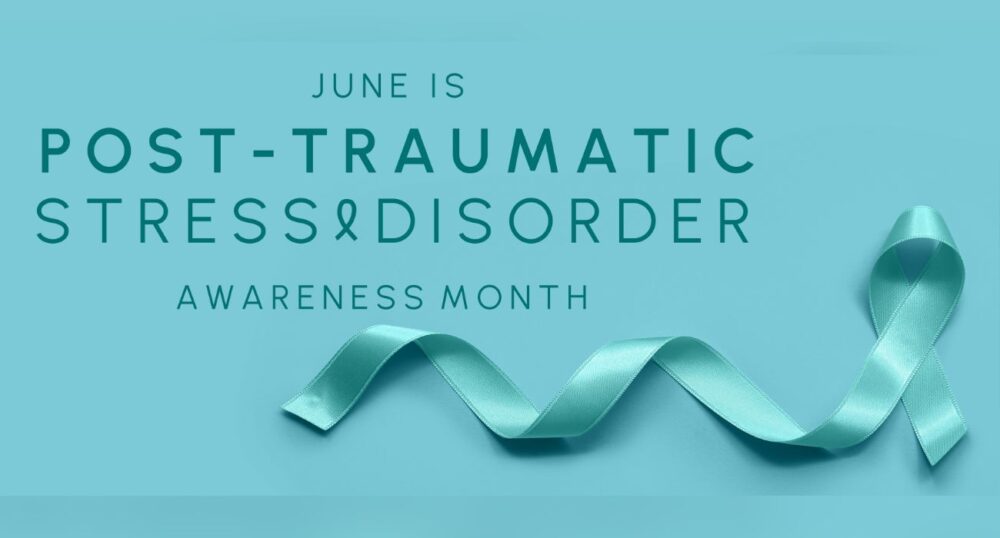June is Post-Traumatic Stress Disorder Awareness Month, an opportunity to increase public understanding about a mental health condition that affects more than 13 million people in the United States. PTSD can develop after experiencing or witnessing a life-altering event.
Trauma has no boundaries regarding age, gender, socioeconomic status, race, ethnicity or sexual orientation. One in three people who experience severe trauma will develop PTSD, and three in every 50 American adults will have experienced PTSD at some point in their lives. Many cases of PTSD go undiagnosed due to the stigma around mental health conditions or fear of repercussions. Though we’ve made strides as a society in recent years, there’s still work to be done to combat the stigma around mental health and receiving care.
As we continue to have more in-depth conversations around men’s mental health, gun violence, sexual assault awareness and domestic violence, it’s our responsibility to uplift those experiencing trauma and share local resources.
Treatment for PTSD can include a variety of evidence-based and holistic approaches including the following:
- Cognitive-Behavioral Therapy (CBT): CBT can help treat PTSD by teaching the person to recognize and change thoughts that lead to negative behaviors while also developing coping strategies for anxiety, depression and other issues related to the condition.
- Dialectical Behavior Therapy (DBT): DBT is an evidence-based approach that helps those impacted by PTSD regulate their emotions and manage stress. This type of therapy focuses on establishing a sense of balance in the person’s life while providing coping strategies for times of distress.
- Eye Movement Desensitization and Reprocessing (EMDR): EMDR uses bilateral stimulation, such as side-to-side eye movements, to help those affected by PTSD process and manage their traumatic memories. This approach provides an opportunity to gain a new perspective on experiences and cope more effectively.
At Connections Wellness Group (CWG), we are dedicated to breaking barriers and healing minds by creating a healthy society strengthened by accessible mental health services across the country. Our programs are designed with compassionate care and lasting impact in mind. We do this through a variety of clinically proven outpatient and group therapy programs, including those that specialize in PTSD treatment, to get individuals experiencing trauma the help they need.
As leaders in the outpatient behavioral and mental health provider space, we believe prioritization of a whole-person treatment approach is more critical than ever. With 70% of people experiencing a potentially traumatic event in their lifetime, providing accessible programs is crucial to ensure patients are equipped with the skills to tackle any challenge they may face.
“Getting better” can come in many forms, but the important thing to remember is that you are not alone. Treatments for PTSD have come a long way and are widely available. But it’s up to us as a community to educate and raise awareness of the possibilities that come with healing.
Dr. Debra Atkisson is the senior vice president of Clinical Services at Connections Wellness Group.


